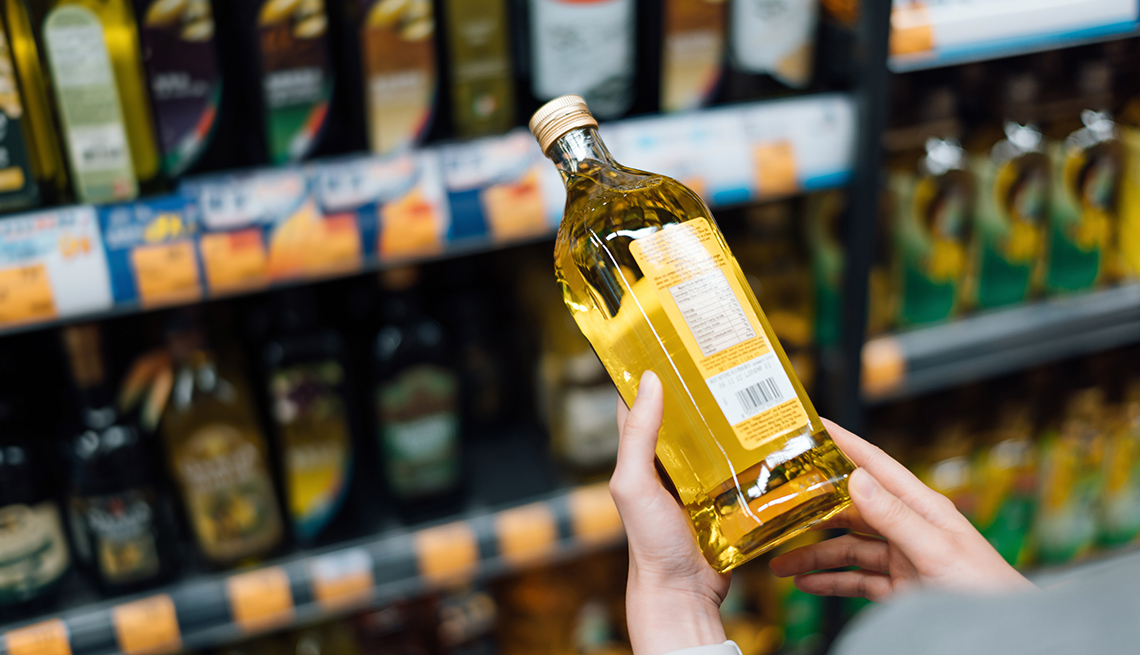
- Select a language for the TTS:
- UK English Female
- UK English Male
- US English Female
- US English Male
- Australian Female
- Australian Male
- Language selected: (auto detect) - EN
Play all audios:
“No other food comes close to extra-virgin olive oil for the prevention and treatment of chronic disease,” says Mary Flynn, a research dietitian at the Miriam Hospital in Providence, Rhode
Island, and associate professor of nutrition at Brown University. Extra-virgin olive oil has been studied perhaps more than any other oil, and a strong and convincing body of evidence has
linked it to a variety of health benefits, including a lower risk of cardiovascular disease, type 2 diabetes, some cancers and even dementia. Extra-virgin olive oil also may be a big part of
the reason the Mediterranean diet is so effective at protecting against chronic disease. Flynn says the oil is healthy, not just because of its monounsaturated fat but also because it is
jam-packed with antioxidants called polyphenols that fight cell damage. Some manufacturers have even started to market “high-phenolic olive oils” that have more antioxidants than ordinary
extra-virgin olive oil. Flynn says early studies indicate those oils likely have more health benefits, but she notes that there are different types of phenols and researchers are still
trying to determine which phenols are most important for health. 4. GET AN ANTIOXIDANT BOOST BY CHOOSING UNREFINED, VIRGIN OR COLD-PRESSED OILS. Most supermarket oils in the United States
are extracted from their source by using high heat or chemicals. That process, called refining, removes residue and results in a clearer, more stable oil with a more consistent color and
odor. However, the refining process also removes beneficial nutrients, says Selina Wang, a food scientist at the University of California, Davis, who studies oils. Unrefined oils, on the
other hand, are mechanically extracted or pressed out of fresh fruit, seeds or nuts. Called “virgin” or “cold-pressed” oils, they tend to be more expensive, but they contain more nutrients
and antioxidants to reduce inflammation. “When our bodies age, it makes these free radicals, and antioxidants protect us from further degradation from these free radicals,” Wang explains.
All extra-virgin olive oils are unrefined, because U.S. and international food regulations require olive oils labeled “extra-virgin” to have been extracted without chemicals or heat. There
is no similar requirement for the word “cold-pressed,” however, so that term on a label is a less reliable indicator of oil quality. 5. CANOLA OIL ISN’T TOXIC. Some people have expressed
concerns that canola oil is toxic, because a solvent called hexane is used to extract it from grape seeds as part of the refining process. Bhupathiraju says hexane has been used to make
refined oils for years, and there is no evidence that it’s associated with a health risk. “You also get exposed to hexane when you’re pumping gasoline,” she says. “Compared to how much you
breathe in [at the gas pump], the amount you get in canola oil is insignificant.” Bhupathiraju notes that canola oil is very low in saturated fat (around 7 percent) and is high in healthy
monounsaturated fats, omega-3s and phytosterols, which are known to reduce the absorption of cholesterol in the body. However, Flynn points out that canola oil is also easily oxidized,
meaning that it may release harmful compounds when it’s exposed to high heat — so it should be avoided for frying or other high-heat cooking methods. 6. WATCH OUT FOR FAKE OILS AND
INACCURATE LABELS. A variety of studies over the years in the United States and around the world have found that many extra-virgin olive oils do not meet the legally required standards to be
labeled “extra-virgin.” In other words, they’re fake.









